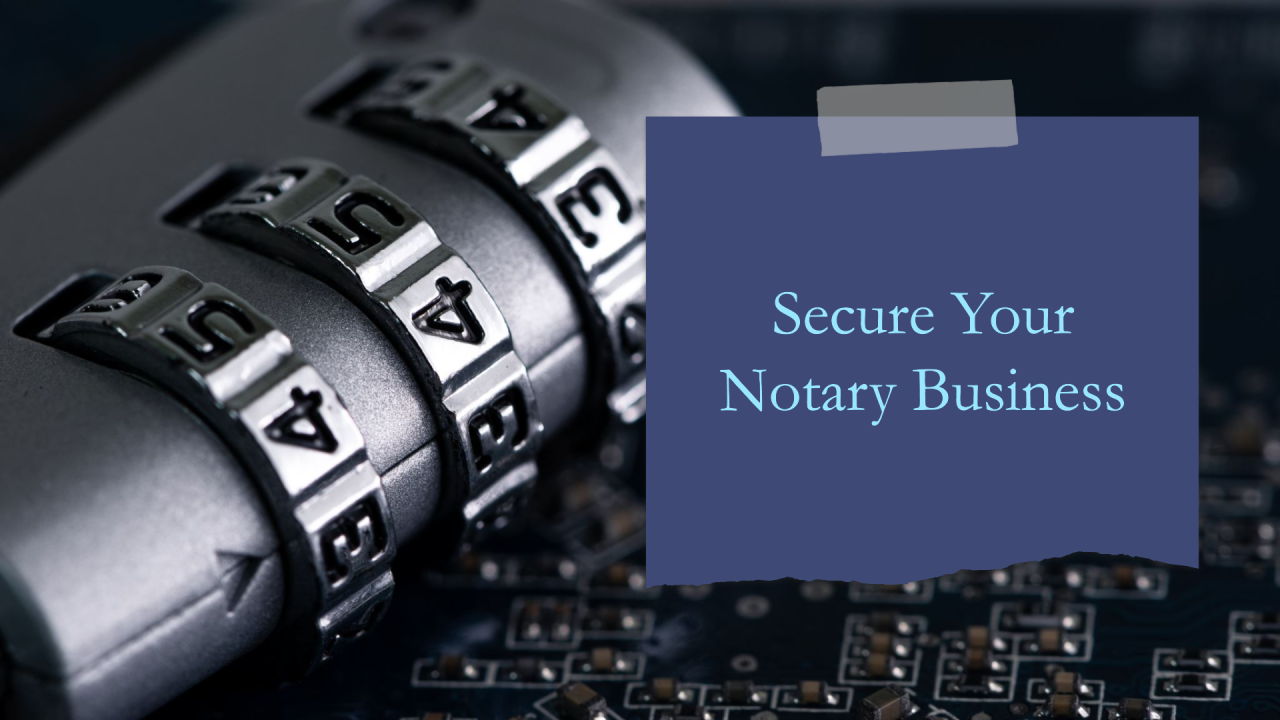
Your Notary Business Best Practices for Creating Secure Passwords
In an age where digital security breaches are becoming common, protecting your notary business, a professional service that involves witnessing and certifying documents, starts with something as simple yet crucial as creating secure passwords. It might seem like a no-brainer, but many still overlook this fundamental aspect of cybersecurity.
The Importance of Strong Passwords
Imagine this scenario: You’re a notary public who has spent years building a reputable business. One day, you discover that unauthorized individuals accessed your sensitive client information because your password was “123456.” It’s a nightmare situation that’s too real for many professionals who underestimate the importance of strong passwords.
Personal Anecdote
I remember my early days as a notary, juggling multiple clients and appointments. Cybersecurity wasn’t even on my radar until a colleague shared a cautionary tale about their near-miss with a data breach. This experience was a turning point, inspiring me to learn and grow in this area. I realized that we leave the doors open for cybercriminals if we don’t proactively protect our digital assets.
Industry Insights and Data
According to a 2022 Verizon report, over 80% of data breaches were due to weak or reused passwords. This statistic is a stark reminder that human error remains a significant vulnerability despite technological advancements.
The notary business, in particular, deals with many sensitive documents and personal information, making it a lucrative target for hackers. Data protection through secure passwords can save notaries from potential legal repercussions and loss of client trust.
Best Practices for Creating Secure Passwords
- Length Matters
Start by making your passwords long—at least 12 characters. The longer your password, the harder it is to crack.
- Mix It Up
Use upper- and lowercase letters, numbers, and special characters. For example, instead of “Notary123,” try “N0t@ry!23.”
- Avoid Common Words and Sequences
Avoid using easily guessable words or sequences like “password,” “123456,” or your name.
- Use Passphrases
Consider using a passphrase—a series of random words strung together, such as “BlueSky$Rain#Time8.”
- Two-factor authentication (2FA)
Enable 2FA wherever possible. This adds an extra layer of security by requiring a second form of identification beyond just the password.
- Password Managers
Use a password manager to generate and store complex passwords. This way, you don’t have to rely on memory alone.
Addressing Counterarguments
Some may argue that these measures take time and effort. However, consider the alternative—dealing with a security breach is far more disruptive and damaging to your business. Investing a little time in creating and managing secure passwords can save you from significant headaches.
Conclusion and Call to Action
In today’s digital world, protecting your notary business goes beyond providing excellent service; it includes safeguarding your clients’ information. By implementing these best practices for creating secure passwords, you can significantly reduce the risk of cyber threats, empowering yourself and your business.
Take action today. Review your current passwords and update them using the tips outlined above. Encourage your colleagues and employees to do the same. Remember, we all play a crucial role in creating a safer digital environment for our notary businesses and clients. Let’s take this responsibility seriously and commit to protecting our digital assets.
Remember, the strength of your password is the first line of defense against cyber-attacks. It’s not just a string of characters; it’s your shield in the digital world. Make it count.
